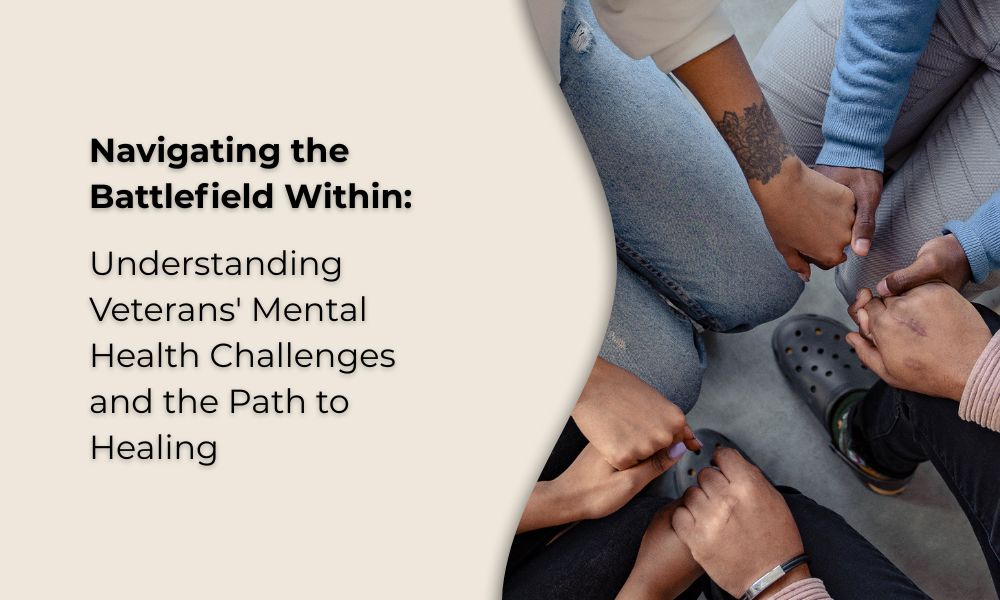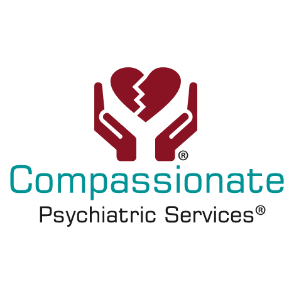Deep dive into PTSD, depression, substance use, and how veterans can access care, including how Compassionate Psychiatric Services supports our military community
“When we are no longer able to change a situation, we are challenged to change ourselves.” — Viktor E. Frankl, M.D., psychiatrist and Holocaust survivor
The Hidden Impact of Military Service Courage in Uniform, Challenges at Home
Military service requires courage, sacrifice, and adaptability. Many veterans come home, changed in ways that are not visible. These changes may be psychological struggles, social adjustments, or emotional burdens that linger long after their service ends. Combat and deployment experiences leave lasting effects on mental health. Recognizing these challenges, understanding the data, and knowing when to get support are essential steps toward healing. At Compassionate Psychiatric Services (CPS) we focus not only on treating symptoms but also on restoring hope, reducing stigma, and helping veterans reclaim meaning and purpose in their lives.
How Common Are Mental Health Challenges Among Veterans PTSD, Depression, Anxiety, and More
Among U.S. veterans who use VA health care, about 23% report having had PTSD at some point in their lives; among veterans who do not use VA health care, the rate is about 7%.
Lifetime prevalence of PTSD in veterans is much higher than in the general population; estimates for civilians are around 6-7% over a lifetime, whereas many studies find significantly higher rates in veteran populations. Current PTSD rates among certain veteran cohorts range roughly 9-15% depending on service era and exposure.
The Hidden Weight of PTSD: When Mental Health Challenges Overlap
Depression, anxiety, substance use, and military sexual trauma often occur alongside PTSD, intensifying struggles with employment, relationships, housing, and reintegration into civilian life.
Depression, anxiety disorders, substance use disorders (SUDs), and military sexual trauma (MST) are frequently co-present with PTSD. For example, veterans who have PTSD often also struggle with depression, or use of alcohol or other substances.
There is also a notable overlap between mental health challenges and social/functional problems: employment, homelessness, relationships, and reintegration into civilian life.
Understanding Who Is Most Affected by PTSD
Women veterans and those who served in recent wars face especially high rates of PTSD, with many struggling silently due to barriers and risk factors.
PTSD does not affect all veterans equally. Women veterans using VA services are diagnosed with PTSD at significantly higher rates than men, with about 24% of women compared to 14% of men receiving a diagnosis in fiscal year 2024. Veterans who served in more recent conflicts, such as Operation Enduring Freedom and Operation Iraqi Freedom, also experience elevated risks. Research suggests that nearly one in three of these veterans may develop PTSD at some point in their lifetime. Many continue to face barriers to care and unique risk factors, which can leave them coping with these challenges in silence.
Barriers and Risk Factors: Why Many Veterans Struggle in Silence
From combat trauma to military sexual trauma and the challenges of civilian reintegration, multiple factors raise the risk of PTSD and make seeking help more difficult.
Understanding how common PTSD is among veterans only tells part of the story. Equally important is recognizing who is most affected, why they are at risk, and what barriers may prevent them from reaching out for support.
Combat exposure is one of the strongest risk factors, as repeated exposure to life-threatening or morally injurious events increases the likelihood of PTSD, depression, anxiety, and substance use.
Military Sexual Trauma (MST) is another significant factor, particularly for women veterans, with about one in three reporting MST when screened in VA settings. Although less common among men, MST also impacts their mental health in profound ways.
Beyond these experiences, many veterans face challenges when adjusting to civilian life, including identity shifts, loss of structure, employment struggles, relationship changes, and sometimes the added burden of physical injuries.
Barriers to Seeking and Receiving PTSD Care
Stigma, limited access, and complex health challenges often prevent veterans from getting timely support, leaving many to cope until symptoms become overwhelming.
Many veterans face significant barriers when it comes to seeking or receiving care for PTSD. Stigma remains strong within military and veteran culture, where values of self-reliance and endurance can discourage individuals from asking for help. Symptoms are sometimes minimized or mistaken for other issues, such as physical pain or “just deployment stress,” which delays recognition and diagnosis. Practical obstacles also play a role, including geographic distance, transportation challenges, work or family responsibilities, and discomfort with telehealth services when reliable access is available. Within the VA system, staffing shortages, long wait times, and regional differences in resources can further complicate access to quality care.
Physical injuries, chronic pain, sleep disorders, traumatic brain injury, and substance misuse often occur alongside PTSD, making diagnosis and treatment more complex. As a result, many veterans delay seeking care until symptoms become severe and disruptive, even though earlier intervention is often more effective.
Final Thoughts
You Are Not Alone, and Help Is Available
The path home from military service can be challenging, but healing is possible with compassionate, evidence-based care and a supportive community.
At Compassionate Psychiatric Services (CPS), we are committed to walking alongside veterans and their families every step of the way. If you are struggling with PTSD, depression, anxiety, substance use, or the challenges of reintegration, you do not have to carry it alone. Our veteran-focused, trauma-informed team provides flexible, personalized care that honors your service and supports your future. Take the first step today. Contact CPS to schedule an appointment and begin your journey toward healing and reconnection.


